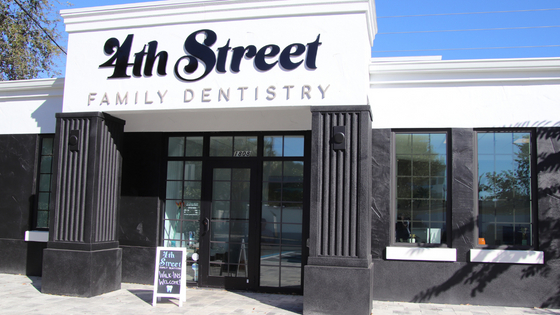Finding the Best Cosmetic Dentist in St. Pete
Besides the health of your teeth, their appearance is just as critical to your self-esteem. If you’re like a lot of people, sadly, you probably don’t like how they look. You don’t have to live with your chipped, discolored, or unattractive teeth. You can get a smile from a cosmetic dentist in St. Pete, but who is the best cosmetic dentist? Here are five easy tips for finding the best cosmetic dentist in St. Pete.
Qualifications & Experience
There are many dentists providing cosmetic services in the city, but not all have undergone additional training to specialize in complex cosmetic treatments. You don’t want to put that smile in just anyone’s hands. You deserve to take advantage of the best cosmetic services in St. Pete. Look for a dentist who has completed specialized training in cosmetic dentistry. Often, search to see if they are part of a number of accreditations, such as the American Dental Association.
Various Services
You require more than just a cookie-cutter treatment plan to achieve the smile of your dreams. To get exactly what you want, you should have multiple choices, so take the time to look at the different dental services offered. Dr. O’Grady, a cosmetic dentist in Denver Highlands, CO, recommends finding a dentist who offers everything you and your family could need. That way you don’t have to see a specialist if you need an extraction someday. So, when looking for a cosmetic dentist, choose a dental office that includes a range of treatments, such as veneers, teeth whitening, Invisalign, and more.
Conveniently Located in St. Petersburg, FL
We completely understand; life is busy. We want you to achieve the smile of your dreams, which should not feel like a chore! Choose a dentist that is convenient for you and your schedule. Luckily, 4th Street Family Dentistry is conveniently located for St. Petersburg, FL residents. We are also open five days a week and offer emergency dental services.
Unfortunately, most insurance plans will not cover cosmetic care unless they also have restorative benefits. It’s likely you’ll need to pay out-of-pocket as a result. To lower the price of your cosmetic treatment, pick a dentist who partners with your insurance provider. Also, search for one who offers dental savings plans.
Testimonials & Reviews
You will learn a lot about a dentist and their staff by taking the time to read online reviews and testimonials. Patients are usually brutally honest when sharing their experiences online. If you’re looking for a cosmetic dentist in St. Pete, FL, consider looking at their work. Also, look on their Instagram or Facebook page to see if any before and after photos of recent cosmetic patients. This will make choosing your cosmetic dentist that much easier. So, to help make the right decision for your smile, you will have a clear understanding of the level of treatment and outcomes you would expect to get.
Choose the Best Dentist in St. Pete
Cosmetic dentistry can be costly, but it’s worth the investment. You deserve a happy and healthy smile that you are proud of. That being said, take the time and do your research when looking for a cosmetic dentist. If you’re in the St. Pete, FL area, Dr. Leeson will help you achieve a confident, beautiful smile that is made to last.
Why Dr. Leeson as Your St. Petersburg, FL Dentist
After practicing in private practice in the Tampa Bay area for the last few years, Dr. Leeson has chosen to start his own practice in the neighborhood he lives in and loves. Some of the cosmetic dentistry services offered at 4th Street Family Dentistry include teeth whitening, dental veneers, dental crowns, dental bonding, and more.
Dr. Leeson earned his dental degree from Temple University in Philadelphia. He loves giving back to his friends. He works with local charity Tampa Bay Watch where he is committed to contributing a portion of all new patient sales to support non-profit efforts to restore the bay and keep our beaches safe.
He also works annually with the Florida Project Mercy Outreach Program, which offers free dentistry to the underserved community. When he’s not practicing Dentistry, Dr. Leeson and his wife spend much of their free time cooking, brewing beer, playing sports, and just enjoying the outdoors.









